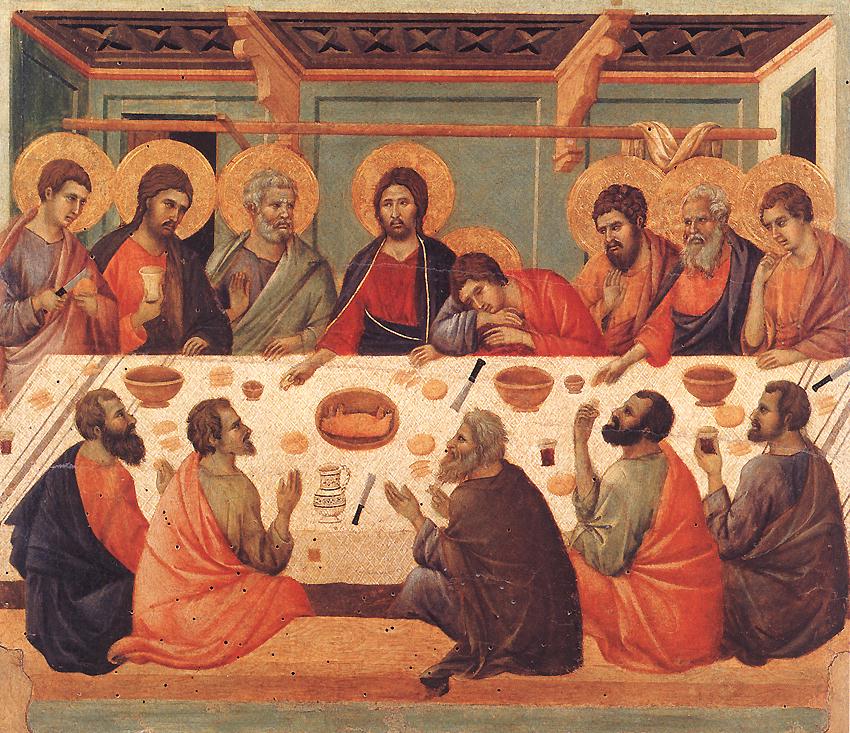This essay first appeared in our weekly Scripture reflection newsletter on April 12, 2025.
Last weekend, during a talk in Philadelphia, a man asked me an excellent question: How could he possibly stay in the Catholic Church when it is so full of sin? The man had many reasons for wanting to leave, as many people do. Just recently, we saw the death of the former Cardinal Theodore McCarrick, who was responsible for multiple incidents of sexual abuse and climbed to the highest rungs in the church hierarchy. His death was another reminder of the sinfulness of the church.
One of my responses to the man’s question was to point out that the church has always been full of sinful people. This is not an excuse for the sinfulness and crimes of some of its members, and some of its leaders, but something for Catholics always to bear in mind.
The sinfulness, mendacity and cowardliness start at the very beginning of the church, as we see reading the Passion of Our Lord on this Palm Sunday. Just consider what we read about the disciples’ actions during the Passion.
The sinfulness, mendacity and cowardliness start at the very beginning of the church, as we see in the Gospel of the Passion of Our Lord on this Palm Sunday.
First, we have the story of Peter. Jesus somehow intuits that his closest friend will deny knowing him during his hour of need. How Jesus’s prediction must have stung Peter! At the same time, you might think that this would embolden Peter to be more faithful. That is, if someone said to you, “I think you’re going to fail me,” wouldn’t you work extra hard not to fail? Nonetheless, Peter sins. When someone recognizes him (by his Galilean accent, apparently) he denies knowing Jesus—the person whom he had not only followed as a disciple but just assured of his fidelity.
Peter is not the only one who is a mess. At the Last Supper, after Jesus says that he will offer his Body for the salvation of the world, what do the disciples talk about? Who is the greatest among the disciples! This echoes the story elsewhere in the Gospels, when James and John (or their mother) ask Jesus if they can have a pride of place in the reign of God. It’s incredible to imagine people jockeying for position at the Last Supper. But there it is. Even worse, Judas betrays Jesus outright, handing him over to his executioners.
Finally, at the Mount of Olives, traditionally in the Garden of Gethsemane, though the disciples know that this is a critical hour for Jesus, when he expects them simply to be with him, they fall asleep. None of these incidents show the disciples in the best light.
Peter would have understood himself as a sinful person. And he would have understood his need, and the need for everyone in the church, to rely on God’s grace to help us to survive.
And remember what New Testament scholars tell us: When we read things that could be potentially embarrassing for the early church, they are probably 100% historically accurate. Why? Because the Gospel writers are intent not only on faithfully recounting the story of Jesus, but also putting the church’s future leaders in a good light. They would have never intentionally made things up that would cast the future leaders of the church in a bad light. So, we can be sure: The disciples really were this sinful, mendacious and cowardly.
The church has always been a place for sinful people. And it always will be. So while we should hold our leaders to high standards (and high civic standards as well), we have to remember that a search for a church or religious organization without sinners is a search without end.
One of the most likely reasons that the Risen Christ commissioned Peter to lead the church after he forgave him was that, above all people, Peter would have understood this dynamic. He would have understood himself as a sinful person. And he would have understood his need, and the need for everyone in the church, to rely on God’s grace to help us to survive.



